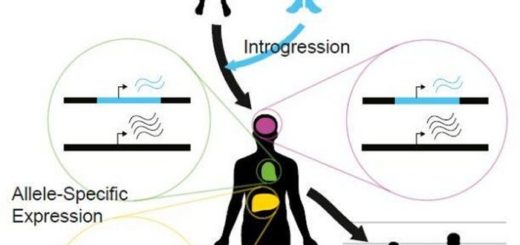Michael Cohen to be released from prison over coronavirus fears – report

Trump’s ex-fixer will remain under quarantine for 14 days before he is released to serve the rest of his sentence in home confinement
Donald Trump’s former lawyer and longtime fixer Michael Cohen will reportedly be released from federal prison to serve the remainder of his sentence in home confinement because of the coronavirus pandemic.
Cohen is currently locked up at FCI Otisville in New York after pleading guilty to numerous charges, including campaign finance fraud and lying to Congress. Cohen began serving his sentence last May and was scheduled to be released from prison in November 2021.
Donald Trump defers to governors in guidelines for reopening US amid pandemic
Read more
He will remain under quarantine for 14 days before he is released. Federal statistics show 14 inmates and seven staff members at the prison have tested positive for the coronavirus.
After he is released, Cohen will serve the remainder of his sentence at home, according to multiple US media reports citing Cohen’s lawyer, Roger Adler.
Cohen’s release comes as prison advocates and congressional leaders have been pressing the justice department for weeks to release at-risk inmates ahead of a potential outbreak, arguing that the public health guidance to stay 6ft (1.8 meters) away from other people is nearly impossible behind bars.
The attorney general, William Barr, ordered the Bureau of Prisons (BOP) earlier this month to increase the use of home confinement and expedite the release of eligible high-risk inmates, beginning at three prisons identified as coronavirus hotspots. Otisville is not one of those facilities.
Advertisement
As of Thursday, 473 federal inmates and 279 Bureau of Prisons staff members had tested positive for the coronavirus at facilities across the US. Eighteen inmates have died since late March.
Many federal inmates have been seeking home confinement as the number of coronavirus cases grows in the federal prison system, but advocates have accused the Bureau of Prisons of moving too slowly to release inmates. The Bureau of Prisons said it had moved more than 1,000 inmates to home confinement since 26 March, when Barr first issued a directive to increase its use in late March. The agency said it was a “tremendous logistical lift that was accomplished through the marshaling of all of BOP’s resources”.
A federal judge had denied Cohen’s attempt for an early release to home confinement after serving 10 months in prison and said in a ruling earlier this month that it “appears to be just another effort to inject himself into the news cycle”. But the Bureau of Prisons can take action to move him to home confinement without a judicial order.
Other high-profile inmates have also been released as the number of coronavirus cases soars. Last week, a judge ordered Michael Avenatti – the attorney who rose to fame representing porn star Stormy Daniels in lawsuits against Trump – to be temporarily freed from a federal jail in New York City and stay at a friend’s house in Los Angeles.
Avenatti had said he was at high risk of getting the coronavirus because he had recently had pneumonia and his cellmate at the Metropolitan correctional center in Manhattan was removed due to flu-like symptoms.
The former New York state senate leader Dean Skelos, 72, who was also serving a sentence at Otisville, is also expected to be released soon from prison to home confinement after testing positive for the coronavirus, prosecutors told a judge on Wednesday.
CNN first reported Cohen was being released to home confinement.
A spokesman for the US attorney’s office in Manhattan declined to comment.
The Associated Press contributed to this report
In the midst of a global crisis…
… the truth is a powerful tool. The news has rarely been so relentless, so bewildering. Which is why we at the Guardian dedicate time for every story we publish to checking and double-checking what is true and what is not. With so much misinformation out there, this already-disorientating crisis can be difficult to navigate. As an independent news organisation, we make it our mission to deliver honest, unbiased, accurate journalism.
You’ve read 9 articles in the last six months. We believe every one of us deserves equal access to reliable news and explanation. So, unlike many others, we made a different choice: to keep Guardian journalism open for all, regardless of where they live or what they can afford to pay. This would not be possible without the generosity of readers, who now support our work from 180 countries around the world.
We have upheld our editorial independence in the face of the disintegration of traditional media – with social platforms giving rise to misinformation, the seemingly unstoppable rise of big tech and independent voices being squashed by commercial ownership. The Guardian’s independence means we can set our own agenda and voice our own opinions. Our journalism is free from commercial and political bias – never influenced by billionaire owners or shareholders. This makes us different. It means we can challenge the powerful without fear and give a voice to those less heard.
Your financial support has meant we can keep investigating, disentangling and interrogating. It has protected our independence, which has never been so critical. We are so grateful.
We need your support so we can keep delivering quality journalism that’s open and independent. And that is here for the long term. Every reader contribution, however big or small, is so valuable



 Creators of mankind
Creators of mankind Description of “Tall white aliens”
Description of “Tall white aliens” Where they came from?
Where they came from? About hostile civilizations
About hostile civilizations The war for the Earth
The war for the Earth “Tall white aliens” about eternal life
“Tall white aliens” about eternal life Video: “Nordic aliens”
Video: “Nordic aliens” Aliens
Aliens Alien encounters
Alien encounters The aliens base
The aliens base UFO
UFO Technology UFO
Technology UFO Underground civilization
Underground civilization Ancient alien artifacts
Ancient alien artifacts Military and UFO
Military and UFO Mysteries and hypotheses
Mysteries and hypotheses Scientific facts
Scientific facts


















